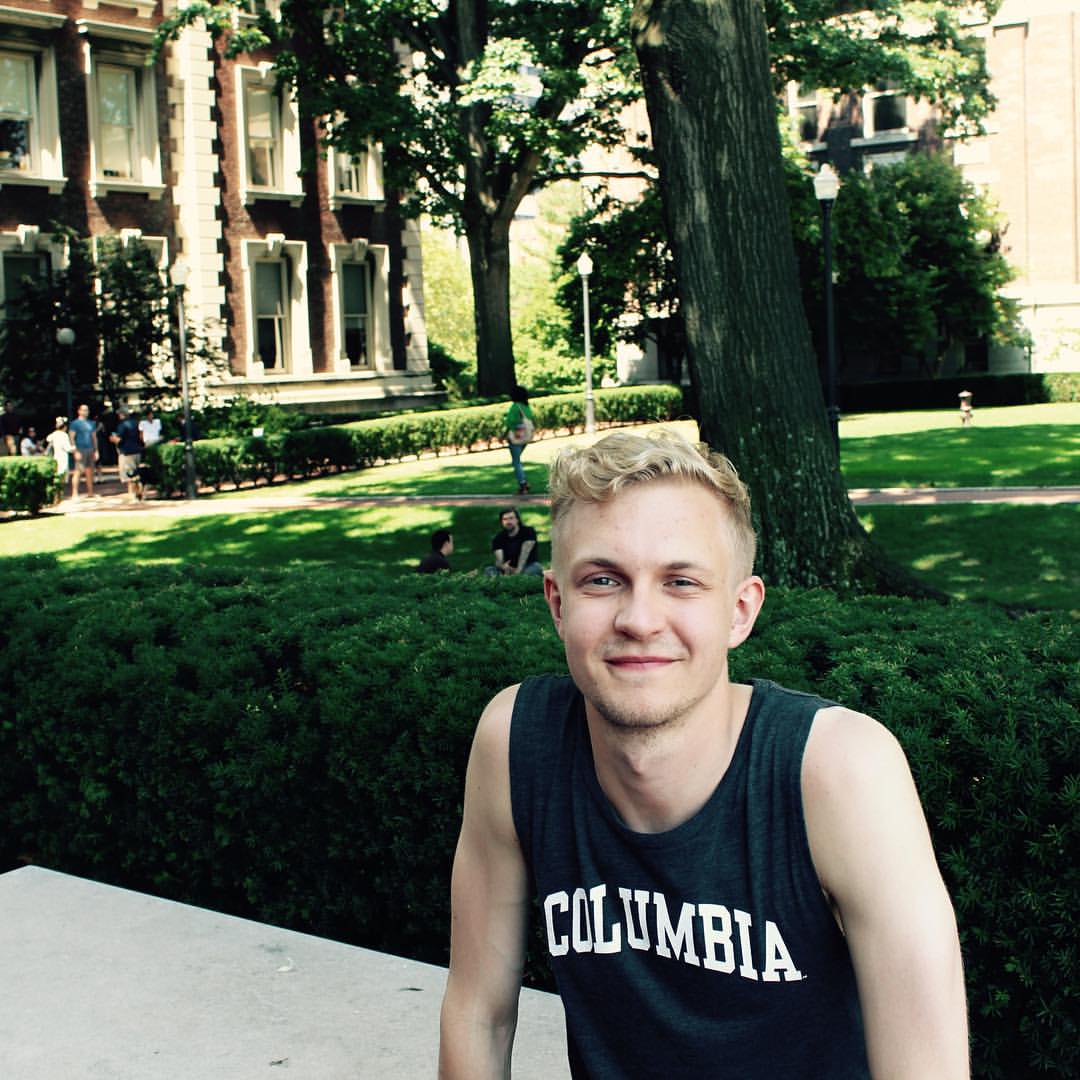Kalle Mattila, 2015-16 Thanks To Scandinavia Scholar at Columbia University


Kalle Mattila is a writer from Finland pursuing an MFA in Creative Writing at Columbia University.
Could you tell us how your TTS scholarship came about?
I applied for the scholarship through the League of Finnish-American societies, who nominated me as one of three finalists. I was then chosen as the Finnish scholar by TTS. It was a huge blessing. I would not have been able to afford Columbia without it.
We understand you are a second-generation TTS scholar. Can you tell us more about that?
My mother Maija Tanninen-Mattila was a TTS scholar in 1993-94. She studied Museum Education at George Washington University in DC. The year was an important one for her and our family, and distinctively shaped her career. She is now the director of the Helsinki Art Museum.
As a non-fiction writer, what topics do you prefer to explore?
The greatest thing about nonfiction for me is that it encompasses a variety of forms. I am interested in writing political commentary and reportage just as much as I am in personal essays, travel writing, and literary criticism. In the future I hope to be an author, journalist, and critic – all at the same time.
How have your travels to Bosnia, London and study in the U.S. affected your outlook?
I attended United World College in Bosnia with students from 59 countries. Similarly, there were over 110 nationalities at the School of Oriental and African Studies at the University of London. At Columbia, I am also exposed to a spectacular range of backgrounds and experiences. I realize that is rare, and incredibly valuable. Multiculturalism makes us think smarter, more creatively, and more empathetically – about everything. I think we need that in the world.
You are now working on your first book. What is it about?
I am writing about the American Dream from the perspective of a Finn. I think a lot about freedom and independence, and what those things mean in terms of language and culture –– who we are and what we can become.
Has awareness of the Nordic experience during World War II affected your outlook and/or your writing?
The inspiring stories have led me think a lot about the kind of writer I want to be. It is important for me that my work has societal impact and promotes human rights. Recently I wrote an article for The Atlantic that looked at LGBTQ rights in advertising.
What are you most passionate about?
Putting pen to paper.
Interview conducted September 2016.